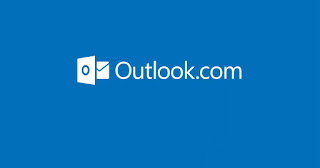Digital Rights Group Slams Microsoft for Reading Blogger's Hotmail
A computerized rights backing bunch pummeled Microsoft for getting to the Hotmail messages of a blogger who professedly got stolen Windows data spilled by a representative.
Andrew Crocker, a lawful individual at the Electronic Frontier Foundation, contrasted Microsoft's activities with a law-requirement examination and contended that the organization ought to have looked for a warrant.
At issue is the Monday capture of previous Microsoft representative Alex Kibkalo, who is blamed for taking unreleased Windows code and imparting it to an anonymous blogger. The protestation expresses Microsoft's legitimate group endorsed the organization to experience the blogger's Microsoft Hotmail account with an end goal to distinguish the leaker.
"The procedure depicted in Microsoft's announcement looks to some extent like a standard criminal examination ... We should call it Warrants for Windows!" Crocker composed.
Microsoft declined to remark on the EFF's announcement, however the organization published a blog entry late Thursday after media reports of the Hotmail get to. Microsoft likewise brought up that its terms of administration express the organization may take such activities.
Microsoft also said it couldn't have procured a warrant to search its own servers, but Crocker argued that's not the case.
Christopher Soghoian, a technologist at the American Civil Liberties Union, also weighed in via Twitter:
But Microsoft isn't the only tech company to follow terms of service that allow email snooping in circumstances like legal proceedings. As British newspaper The Guardian pointed out, Yahoo, Google and Apple also reserve the right to search users' email in some cases.
That could be a big concern for journalists, according to independent security researcher Ashkan Holtani. He pointed out 12 of the 25 most-read news sites use Microsoft or Google products for their corporate email.
Andrew Crocker, a lawful individual at the Electronic Frontier Foundation, contrasted Microsoft's activities with a law-requirement examination and contended that the organization ought to have looked for a warrant.
At issue is the Monday capture of previous Microsoft representative Alex Kibkalo, who is blamed for taking unreleased Windows code and imparting it to an anonymous blogger. The protestation expresses Microsoft's legitimate group endorsed the organization to experience the blogger's Microsoft Hotmail account with an end goal to distinguish the leaker.
"The procedure depicted in Microsoft's announcement looks to some extent like a standard criminal examination ... We should call it Warrants for Windows!" Crocker composed.
Microsoft declined to remark on the EFF's announcement, however the organization published a blog entry late Thursday after media reports of the Hotmail get to. Microsoft likewise brought up that its terms of administration express the organization may take such activities.
Microsoft also said it couldn't have procured a warrant to search its own servers, but Crocker argued that's not the case.
Christopher Soghoian, a technologist at the American Civil Liberties Union, also weighed in via Twitter:
But Microsoft isn't the only tech company to follow terms of service that allow email snooping in circumstances like legal proceedings. As British newspaper The Guardian pointed out, Yahoo, Google and Apple also reserve the right to search users' email in some cases.
That could be a big concern for journalists, according to independent security researcher Ashkan Holtani. He pointed out 12 of the 25 most-read news sites use Microsoft or Google products for their corporate email.


Nhận xét